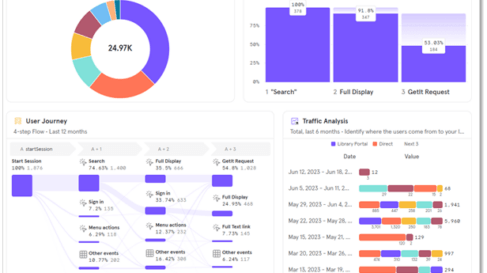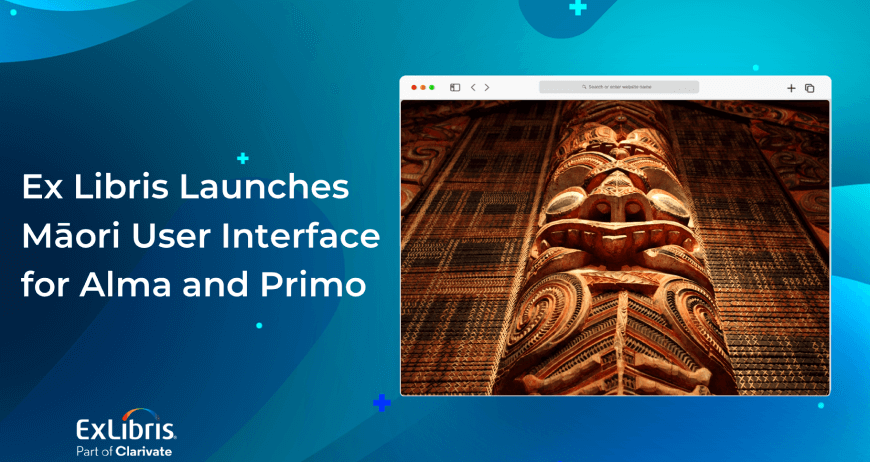Michal (Michelle) Gindi, Director of Publisher Relations, Ex Libris
The emergence of discovery systems, which enabled library patrons to move from federated search methodologies to a unified, index-based search, has changed the nature of library searching. With this shift, libraries can now offer patrons a comprehensive, user-friendly discovery experience.
But how comprehensive is “comprehensive” when not all data is accessible? The question of whether content providers should deliver their content through discovery systems from other vendors has been raised many times. However, the real question we should all be asking ourselves, especially following the publication of NISO’s ODI guidelines, is why shouldn’t vendors make their data accessible to patrons through discovery systems. The role of discovery services is to facilitate access to content, and nothing more.
In this post, I’d like to make the case for collaboration and true openness among stakeholders in the discovery arena, to better serve the scholarly community. There are four main stakeholders:
- The providers—publishers and content aggregators—that generate and supply the content
- The libraries that purchase or license the content
- The discovery system providers
- The users
Libraries spend heavily on the acquisition of content from content providers. To maximize the impact of these investments and best serve their patrons, libraries must have freedom of choice—that is, they must be able to choose which content to purchase, whom to purchase it from, and which system or platform their patrons will use to discover said content. When content providers exclude their content from all—or some—discovery systems, libraries lose their freedom of choice. And if a content provider and discovery provider are one and the same, a clear conflict of interest arises; instead of benefiting from the dissemination of content, libraries are drawn into the exclusivity game.
The withholding of content from discovery systems (or from specific discovery systems) by content providers is not a widespread phenomenon. The vast majority of content providers, mostly full-text providers but also some abstracting and indexing (A&I) providers, collaborate with all discovery services in an honest effort to serve their customer base. However, a small number of publishers and aggregators still refuse to collaborate with all, or some, discovery providers.
Exclusivity and the withholding of content are not in the interest of libraries, scholarly consumers of information, or authors who publish their research. What is the benefit of an article that is published but rarely or never accessed? The fact of the matter is that most patrons today access their library’s purchased or licensed content through a discovery service. Withholding content from discovery systems directly decreases the usage of such content, the number of its citations, and thus also its impact factor. A&I providers that do not contribute to discovery services exclude large groups of users, especially undergraduates, who expect to have all content available in one place (as it is when they search in Google). Such groups of users tend not to use multiple platforms when searching.
Bottom line? By not making content discoverable, publishers devalue their own content and render it a target for cancellation by libraries. True openness means serving the scholarly community by making sure that all relevant and subscribed scholarly content is as widely exposed as possible in all discovery services.
Curious to find out more? Learn about the Ex Libris library software.
You might also be interested in

Alma
Content
Primo
Artificial Intelligence
December 18, 2024 |
4 min read
Artificial Intelligence Blog Series: Harnessing Academic AI – Insights from Clarivate

Alma
Leganto
Primo
Artificial Intelligence
October 26, 2024 |
3 min read
Artificial Intelligence Blog Series: Meet Knowledge Assistant, Your Guide to the Ex Libris Knowledge Center

Primo
Artificial Intelligence
Higher Education
Research
September 23, 2024 |
4 min read
Elevate User Engagement with Advanced Analytics: Ex Libris Primo Partners with Mixpanel
Great library experiences start with software
Download whitepaper

Primo
Artificial Intelligence
Higher Education
Research
June 19, 2024 |
4 min read
Artificial Intelligence Blog Series: Meet Primo Research Assistant

Primo
January 30, 2024 |
3 min read
Revolutionizing Library Discovery: The Journey to a New UX for Primo Discovery

Primo
Artificial Intelligence
November 23, 2023 |
4 min read
Artificial Intelligence Blog Series: Prioritizing Conversational Discovery at Ex Libris

Alma
Leganto
Primo
Rapido
October 29, 2023 |
4 min read
Why academic libraries are modernizing the user experience

Alma
Primo
July 28, 2022 |
3 min read
Ex Libris Launches Māori User Interface for Alma and Primo

